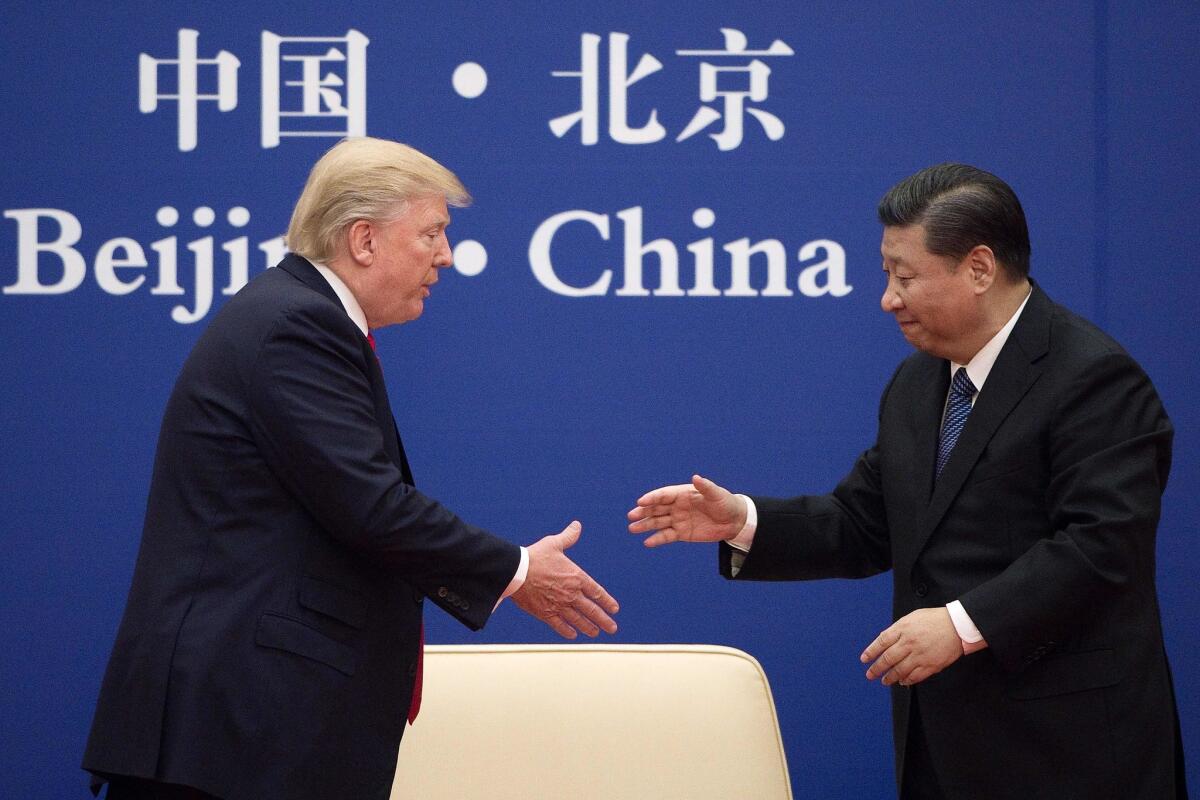Letters to the Editor: Who’s winning the trade war? Trumpists say believe us, not your lying wallets

- Share via
To the editor: In his piece defending President Trump’s China policies, Greg Autry blithely states that “as of the end of August, the treasury had collected more than $25 billion in tariffs from China.” Reputable economists such as Paul Krugman have debunked similar claims by Trump. But the lie continues to keep getting repeated by, what Krugman calls, the “zombie economists.”
Autry should not hide behind modeling by European economists Benedikt Zoller-Rydzek and Gabriel Felbermayr. He should himself explain in layman’s language how tariffs are paid by the exporting rather than the importing country.
Forcing manufacturing to move from China to low-wage countries merely transfers the problem of U.S. worker job loss. These countries do not have established manufacturing supply chains comparable to the ones in China. Reliable supply and quality will be endangered.
China’s predatory practices are real, but tariffs are the wrong way to solve the problem. Trump should have enrolled allies in exerting collective pressure on China; instead, he abused the allies and embarked on the disastrous tariffs policy as a delusional “lone ranger.”
Sardul Singh Minhas, Anaheim Hills
..
To the editor: Autry uses figures from a study by two European economists to show that the U.S. is “winning” its trade war with China. A look past the study’s abstract reveals more to this story.
First, the 4.5% increase in consumer prices cited by Autry is an average figure. The study’s authors project that the price of consumer goods might rise by as much as 6.5%, and that low-income U.S. households in particular will be affected by price increases of more than 20% in some cases.
Additionally, the prediction that 75% of the tariff burden will fall on Chinese producers hinges on how easily consumers can find, afford and purchase “substitute goods,” hence the warning about a disproportionate impact on lower-income consumers.
The authors also caution that should Chinese firms elect to leave the U.S. market due to reduced profits, it could “lead to [product] shortages and serious problems for supply chains in the United States.” The European economists end their policy brief with the admonition that China will seek to target its countervailing tariffs in a way that “falls on U.S. consumers.”
Hardly a rosy scenario.
Stuart Sheldon, Murrieta
A cure for the common opinion
Get thought-provoking perspectives with our weekly newsletter.
You may occasionally receive promotional content from the Los Angeles Times.






